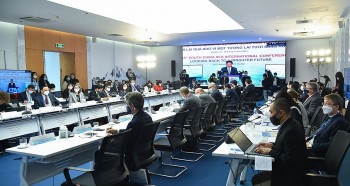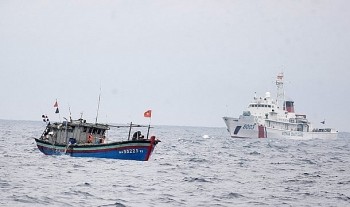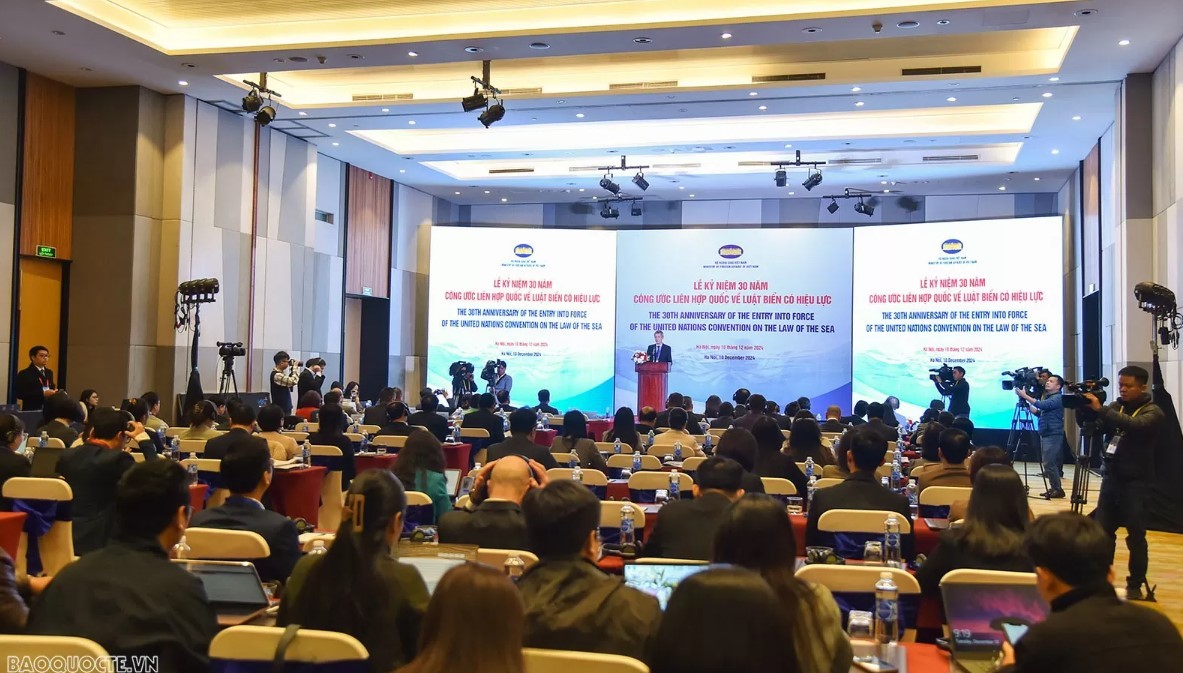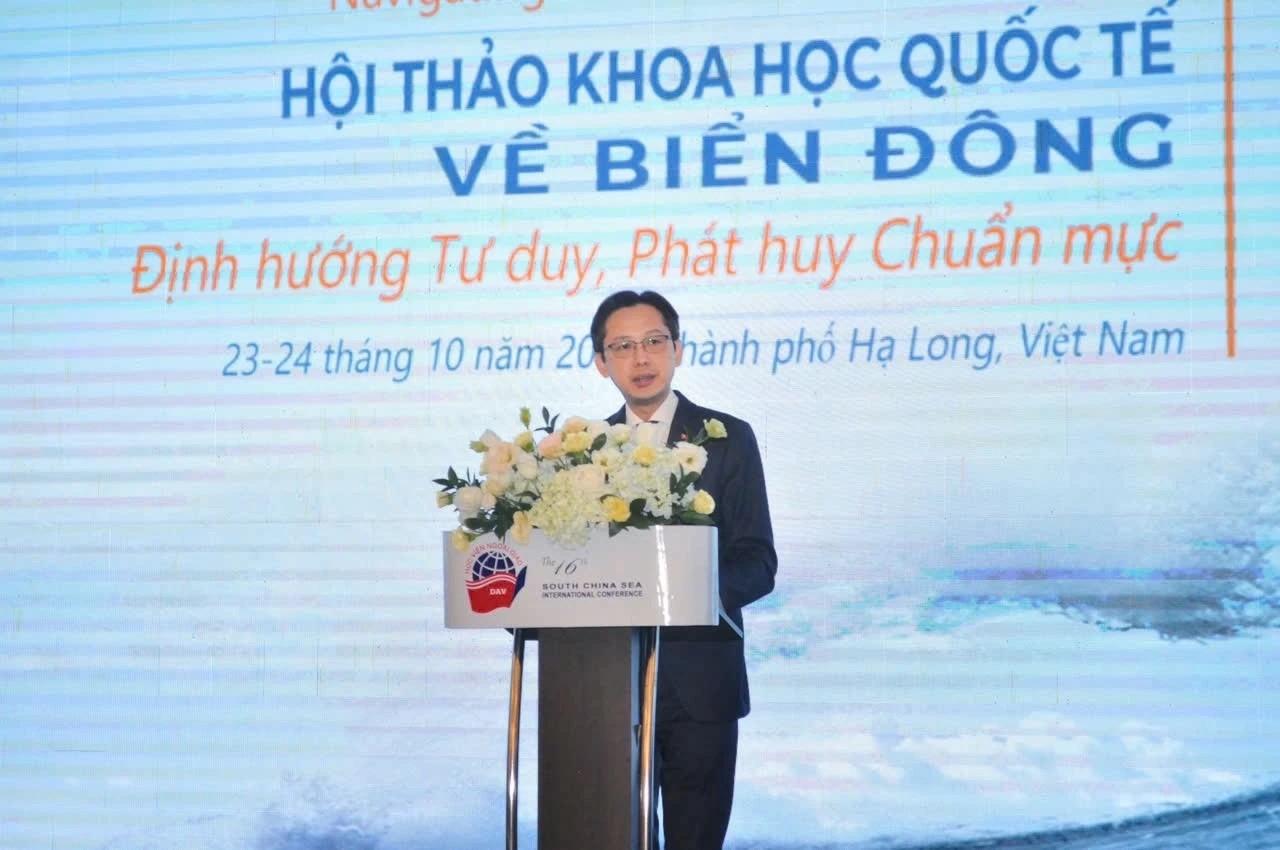Australia, UK Ministers Stress 2016 South China Sea Ruling's Binding Value
 |
| UK Secretary of State for Foreign, Commonwealth and Development Affairs Elizabeth Truss. Photo: AFP |
In a joint statement issued at the annual ministerial consultations on January 21, Australian Minister for Foreign Affairs Marise Payne and Minister for Defence Peter Dutton together with UK Secretary of State for Foreign, Commonwealth, and Development Affairs Elizabeth Truss and Secretary of State for Defence Ben Wallace reiterated their strong opposition to actions that raise tensions, including the militarization of disputed features, the dangerous use of coast guard and maritime militia and efforts to disrupt other countries’ utilization of their offshore resources.
They reiterated that the 2016 South China Sea Arbitral Tribunal decision is final and binding on the parties. Both sides emphasized that any Code of Conduct must fully accord with international law, in particular the UNCLOS, not prejudice the rights or interests of States under international law or undermine existing inclusive regional architecture. Maritime claims and the implementation of domestic legislation must be consistent with the UNCLOS.
In the joint statement, the ministers renewed their support for an open, inclusive, and resilient Indo-Pacific region in which the sovereign rights of all nations are respected. They reaffirmed their commitment to working with partners to shape a region underpinned by rules and norms that are free from coercion, and where disputes are settled peacefully and in accordance with international law.
 |
| Australian Foreign Minister Marise Payne and Liz Truss, her British counterpart. Photo: Financial Review |
The two sides welcomed the enhancement of their countries’ relationships with ASEAN, including the establishment of an ASEAN-Australia Comprehensive Strategic Partnership and the UK’s new status as an official ASEAN Dialogue Partner.
Australia and the UK strongly support ASEAN centrality, ASEAN-led regional architecture, and practical implementation of ASEAN’s Outlook on the Indo-Pacific, they said.
Earlier, the US Department of State released a Limits in the Seas study on China’s maritime claims in the South China Sea. The Department’s Limits in the Seas studies are a longstanding legal and technical series that examine national maritime claims and boundaries and assess their consistency with international law.
This most recent study, the 150th in the Limits in the Seas series, concludes that China asserts unlawful maritime claims in most of the South China Sea, including an unlawful historic rights claim.
This study builds on the Department’s 2014 analysis of China’s ambiguous “dashed-line” claim in the South China Sea. Since 2014, China has continued to assert claims to a wide swath of the South China Sea as well as to what China has termed “internal waters” and “outlying archipelagos,” all of which are inconsistent with international law as reflected in the 1982 Law of the Sea Convention.
With the release of this latest study, the United States calls again on China to conform its maritime claims to international law as reflected in the Law of the Sea Convention, to comply with the decision of the arbitral tribunal in its award of July 12, 2016, in The South China Sea Arbitration, and to cease its unlawful and coercive activities in the South China Sea.
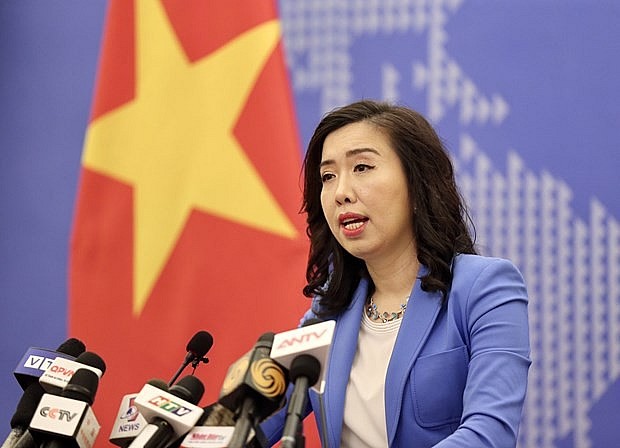 |
| Spokesperson of the Ministry of Foreign Affairs Le Thi Thu Hang Photo: VNA |
In this regard, spokesperson of the Vietnamese Ministry of Foreign Affairs Le Thi Thu Hang said Vietnam acknowledges the US Department of State’s release of the Limits in the Seas study.
Regarding disputes in the Bien Dong Sea, Hang said, Vietnam has repeatedly affirmed its consistent and clear viewpoint on this issue, both at bilateral and multilateral frameworks.
Vietnam always opposes and does not accept all relevant claims that are inconsistent with international law, including the 1982 UNCLOS, said the spokesperson, as cited by VGP News.
On the occasion, Vietnam once again calls on related sides to respect its sovereignty, sovereign right, and jurisdiction in the Bien Dong Sea, as well as diplomatic and legal processes, and make active and practical contributions to maintaining peace and stability, and ensuring security, safety and freedom of navigation and aviation, the integrity of the UNCLOS, and rule-based order, she stressed./.
| US Publishes New Reports Condemning China's Claims on South China Sea | |
| South China Sea Issue: Highlights of 2021 | |
| Vietnam, China Talk Sea Areas beyond Gulf of Tonkin |
Recommended
 Seas and islands
Seas and islands
Vietnam Endorses Common Voice on Ocean Jurisdiction
 Seas and islands
Seas and islands
Dialogue as Key to Settling Disputes and Advancing Law of the Sea
 Seas and islands
Seas and islands
RoK Navy Ship Pays Friendly Visit to Da Nang City
 Seas and islands
Seas and islands
Naval Region 5 Promotes Reading Culture, Fosters Patriotism
 Seas and islands
Seas and islands
Coast Guard Region 2 Command Hosts Philippine Coast Counterpart
 Seas and islands
Seas and islands
Vietnam - Thailand Navy: Coordination to Well Address Problems at Sea
 Seas and islands
Seas and islands
Honoring the Fallen: Incense Offering for the 37th Anniversary of Gac Ma
 Seas and islands
Seas and islands


